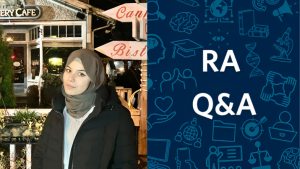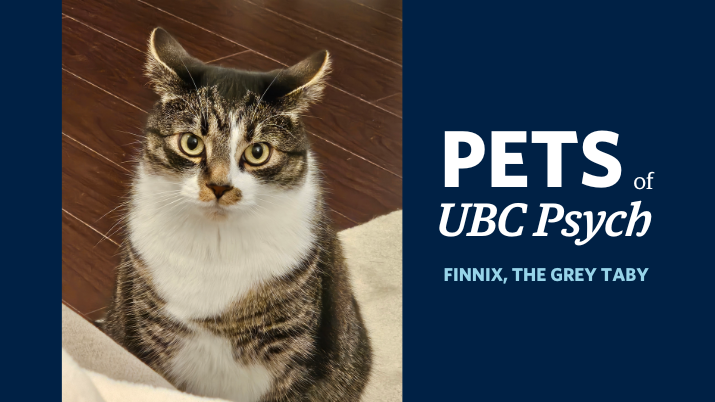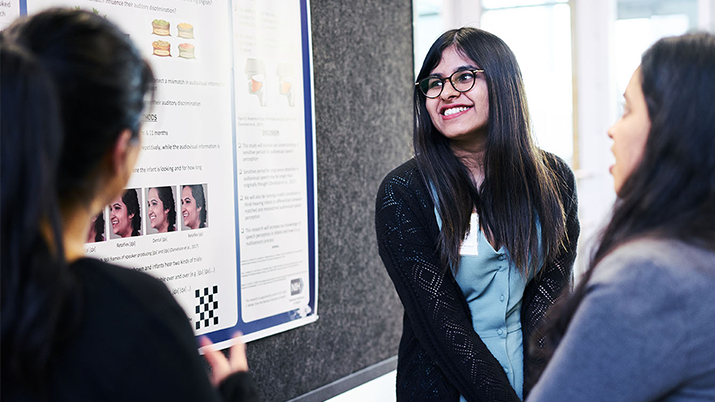

Taima Gheriani is a second-year psychology student hoping to pursue a minor in health and society. She is working as a Research Assistant at the UPLIFT Health Lab, led by Dr. Nancy Sin, as a part of her PSYC240 course placement. The UPLIFT Health Lab is interested in understanding pathways linking inter and intraindividual factors to health. This includes biological and behavioral mechanisms linking daily experiences to long-term health and aging, the roles of positive experiences in stress and coping processes, and more. In the lab, Taima is involved in conducting participant sessions, processing and handling lab packages and devices, data cleaning, and participant recontacting.
How did you first learn about PSYC240 and what motivated you to apply?
In my first-year of university, I attended one of the Psychology Student Association events where I found an upper-year student who recommended the program! I knew that psychology as a field had tons of paths and possibilities to consider, but I still was unsure about where my interests lie and whether research in academia was for me. However, learning about PSYC240 was the perfect opportunity to explore this option. The course allows me to get some hands-on experience to see the behind-the-scenes of what research processes are truly like while also getting a more structured idea of how to plan your future goals.
What intrigues you about research at this lab in particular?
With an interest in healthcare, this lab aligned with my curiosity in understanding how chronic stress can affect our long-term health outcomes and the potential ways to mitigate these effects. I was fascinated by some of the work within this topic, determining how our daily activities and social interactions intersect with our vulnerability to certain diseases and health outcomes. For example, the project I am currently assisting with particularly investigates how the daily experiences and everyday stressors that adults face shape emotional and physical health and well being. This fueled my passion to be a part of this ongoing research that provides valuable insights within this realm and contributes to helpful interventions to improve our ways of coping with stress, especially with aging.
What skills or experience did you gain from PSYC240 that you find valuable?
The research themes the course sets out for you to explore often pushes you outside of your comfort zone to actively seek questions and answers within the lab structures you’re in. Personally, I found asking these fundamental questions strengthened my bonds with other lab members, such as the grad students, other research assistants, and lab manager. Being a part of this course provided me a basis for understanding and approaching psychological research, with opportunities like reading other journals and literature reviews and regularly reflecting on ethics, equity, diversity, inclusion, and ways we can fairly represent the population. I have also gained many practical skills such as detail orientation and enhanced communication that improved my confidence and efficiency with tasks over time!
What is your favourite part of working in the lab?
Seeing research in action! It’s so exciting to interact with many participants and other research members with a collaborative aim in understanding psychological phenomena in the context of health and wellbeing. Additionally, our lab meetings are always fresh and exciting with so many opportunities like journal clubs, EDI meetings, or grad school panels that keep you on your toes to learn more! I had the opportunity to co-lead one of our monthly EDI meetings, and with the committee, we discussed our knowledge and passion about EDI topics in research from authors of diverse backgrounds. Being a part of a supportive and inclusive lab environment fosters a rewarding and uplifting experience.
Do you have any advice for students?
Submit applications early! Get to know your professors and join what you’re genuinely interested in, as it shows in your application and your engagement within the lab itself. Don’t be afraid to reach out to grad students and faculty members about their work, and be ready to make mistakes and learn from it–research is a very messy process, after all. Get to know your lab and its findings, take advantage of the resources you’re given, and don’t be afraid to talk with your fellow research assistants and lab members.


